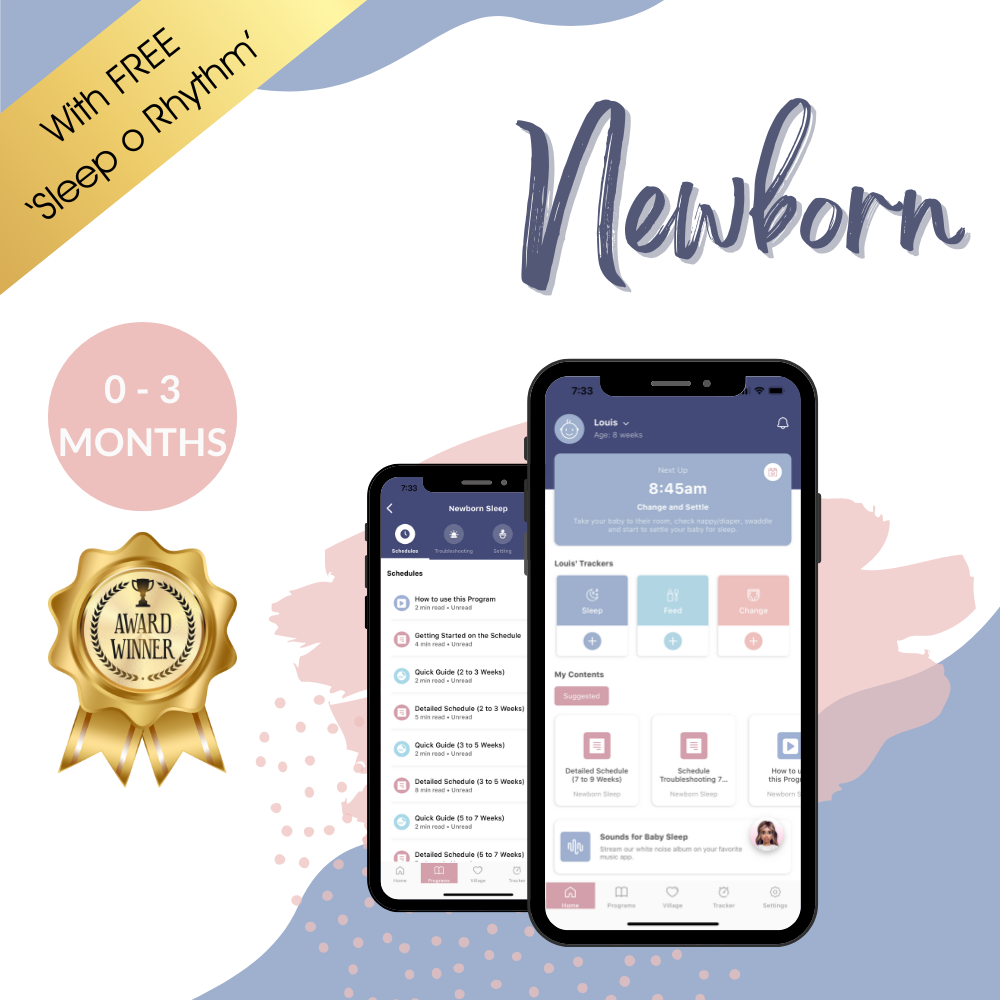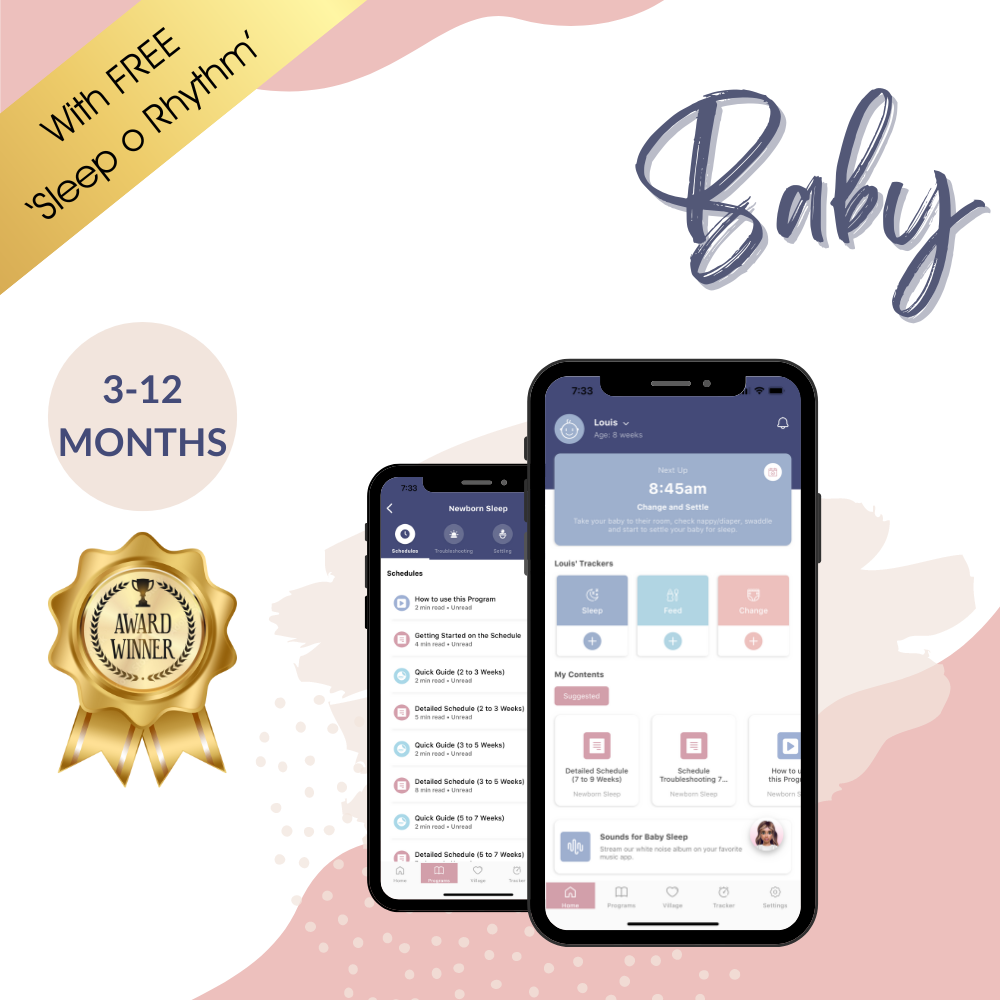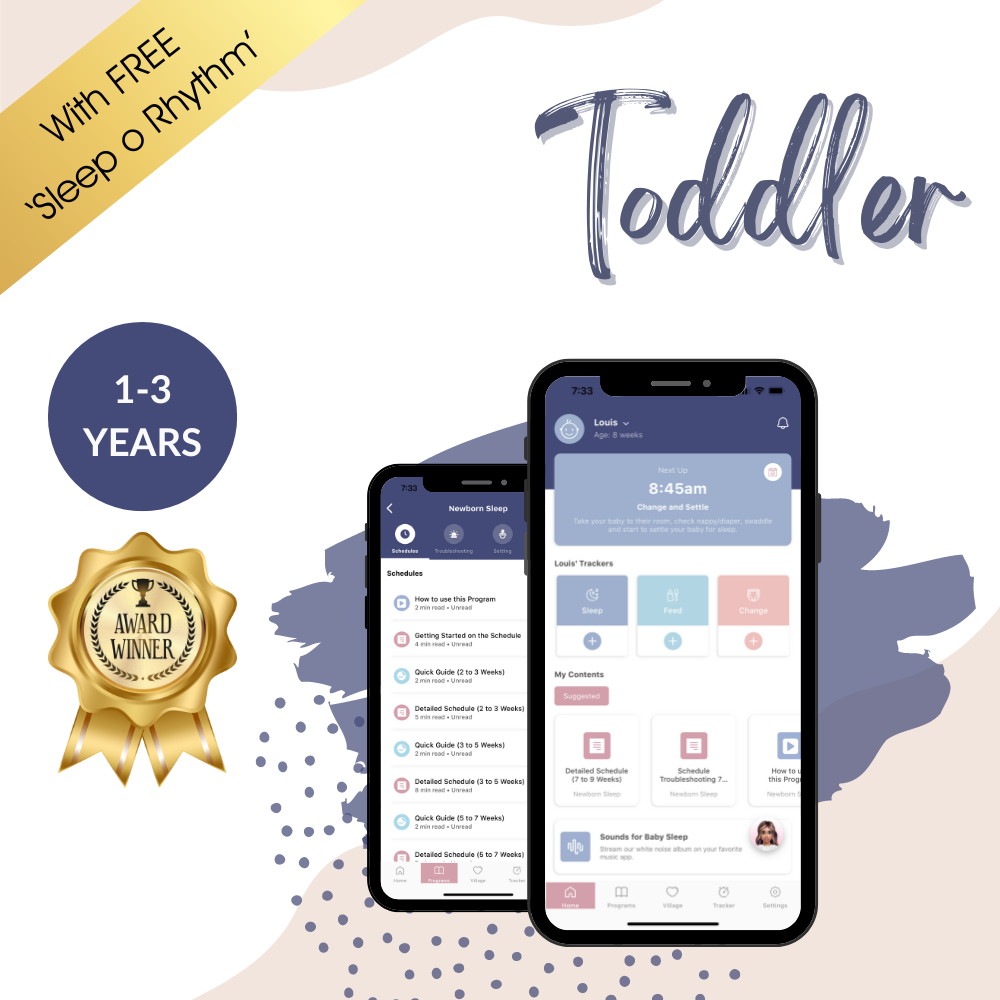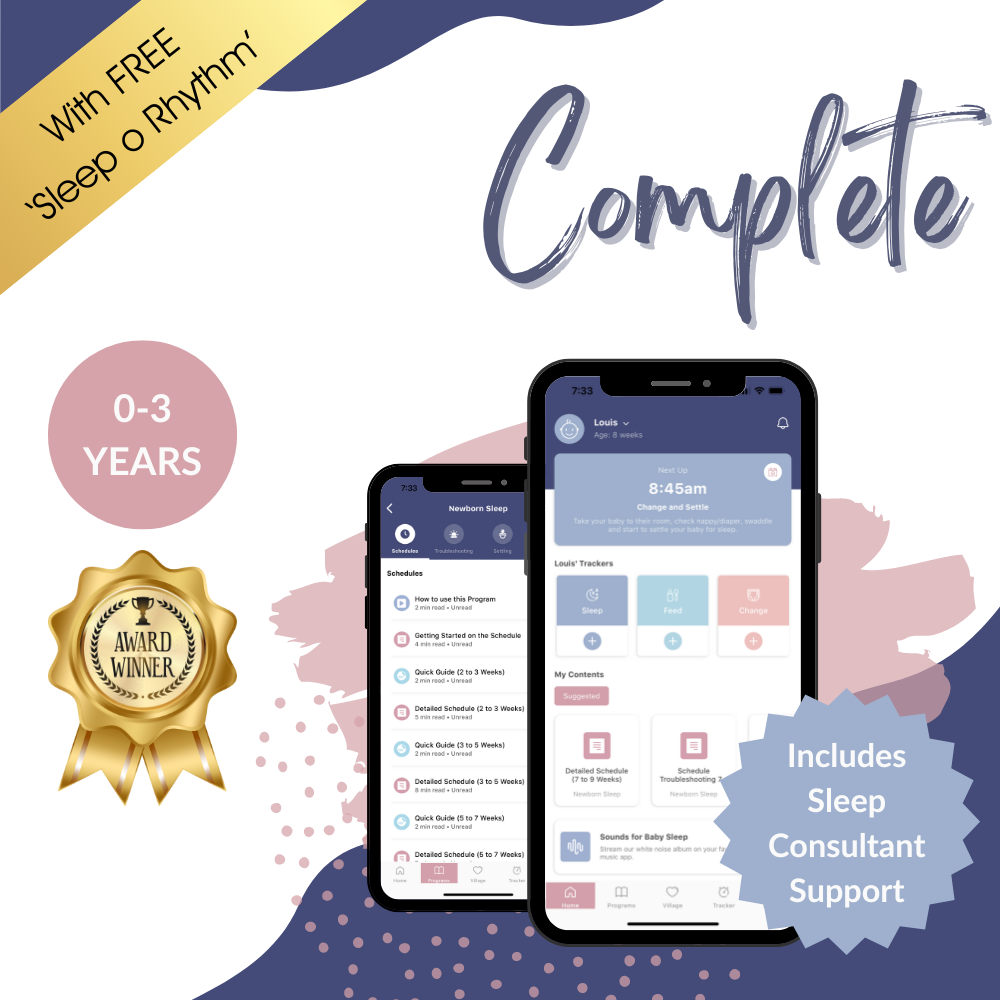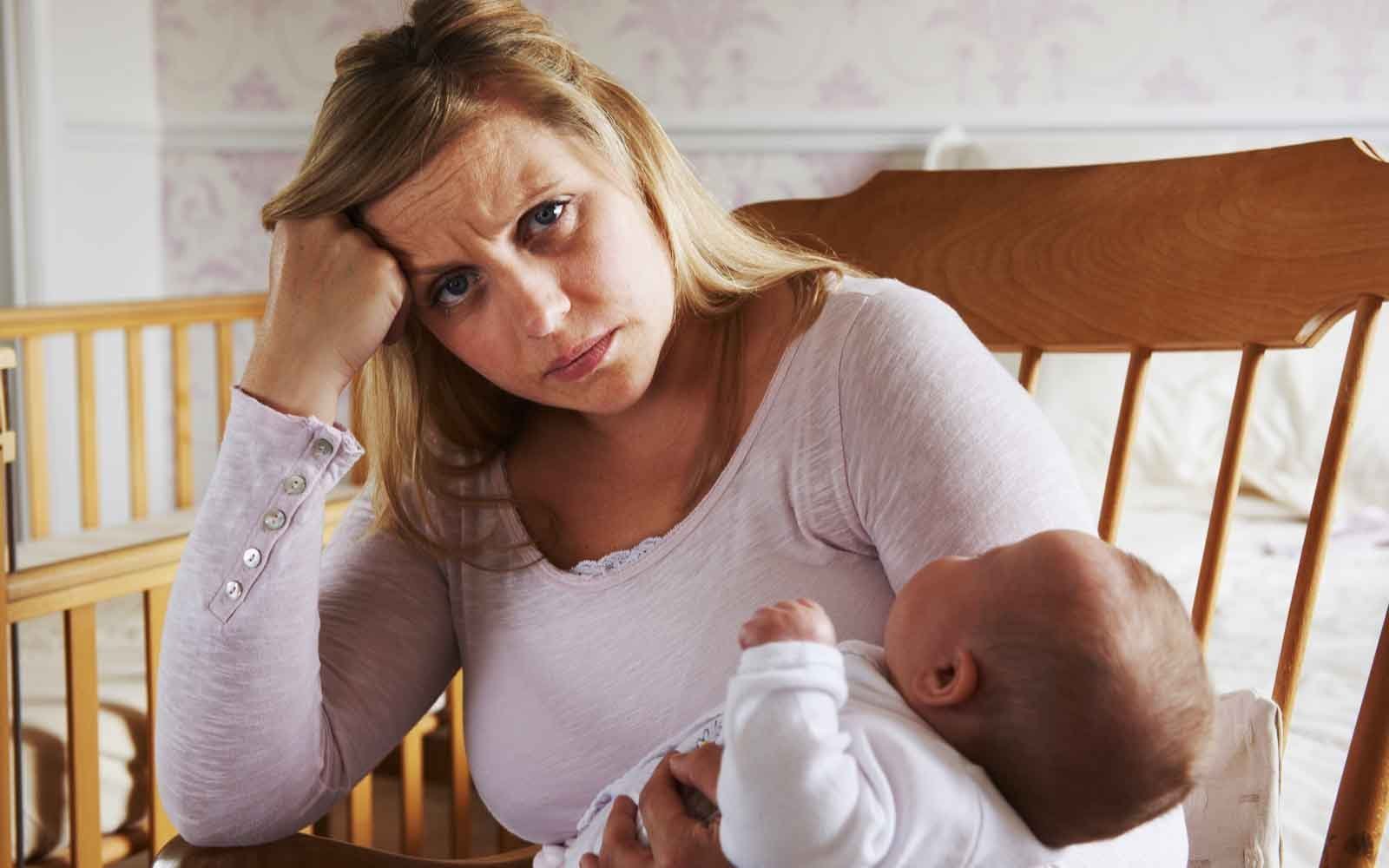
The effects of sleep deprivation (on parents and babies)
Here at Little Ones we are not solely focused on baby sleep - we care about YOUR sleep too. It is our firm belief that sleep is a necessity not a luxury. In fact, it is a scientific certainty that sleep is a biological necessity, for all of us.
These days there are heaps of socially constructed walls around parenting dos and dont's. There are a lot of strong opinions on either side of every wall: bottle or breast, pacifier or no pacifier, co-sleep or not, sleep training or no sleep training, routine or go-with-the-flow...
BUT differences and controversies aside, one thing that ALWAYS holds true with babies and parenting is sleep deprivation. There is no world in which this doesn't exist to some extent for parents.
We all get thrown a tonne of well meaning but unhelpful advice like "it's just a phase" or "that's what babies do" or "all babies are different" or "you just have to expect you'll get no sleep when you've got a baby". None of these comments mean anything at 3 in the morning when your baby is screaming and you're bawling your eyes out!
The truth is, sleep is something we all DESERVE and something we all need in order to function at a basic human level. It is not just something for the lucky or something that you have to give up hope on until your kids start university. Sleep is absolutely achievable for everyone, if you have the right knowledge and tools.
Sleep deprivation, short or long term, can affect humans on many, many levels and the truth is, you simply don't have to put up with it - there IS light at the end of that very foggy tunnel. Our own first-hand experience with chronic sleep deprivation is one of the reasons this company was developed.
In this article, find out what sleep deprivation is doing to your:
- Mental health
- Marriage and relationships
- Physical health
- Growth and development
- Functionality and safety
Yes, I want more sleep!
If you need a helping hand with tackling your baby’s sleep, then check out our Pediatrician-recommended Sleep Programs.
Get our Sleep Programs
Mental health
Scientists and doctors agree that sleep deprivation plays a massive role in your emotional stability, including mental illness and depression. This quite often leads to someone being medicated for these conditions, which are a direct consequence of a chemical and hormonal imbalance as a result of lack of sleep.
We have experience with mothers who have been diagnosed with postnatal depression, whose symptoms disappeared after their baby started sleeping better while following our Sleep Programs. A review of over 100 international studies, conducted in Australia, found that one third of post-natal-depression is caused because the mother needs sleep.
Canberra University researcher and reviewer Kerry Thomas said:
There were a number of programs that had helped parents reduce night-time waking. These were often provided through residential sleep units and maternal and child health centres, but online programs had also resulted in babies falling asleep sooner and waking less often in the night, with improvements to their mothers' mood reported two weeks later.
She then concluded that:
Many new mothers underestimate the effect of disrupted sleep on their emotional health and would benefit from guidance on the impact of sleep deprivation, strategies for gaining more sleep in the postnatal period and early training in sleep strategies for themselves and their infants.
Marriage & relationships
We've all been here. It's not news to any of us that sleep deprivation takes perhaps its biggest toll on your relationship. For some, this will mean your partner moving out of your bed so that you can share it with your baby, who won't sleep in their own cot all night long. For others, it can mean constant arguing or, ultimately, separation as you both struggle to cope with the physiological and emotional effects of chronic sleep deprivation.
Physical health
If you're missing some much-needed shut-eye, it's not just placing strain on your relationship, but actually your entire body as well. There are strong links between sleep deprivation and health. While asleep, your immune system produces infection-fighting antibodies and cells. Sleep deprivation means your immune system doesn’t have a chance to build up its forces.
If you don’t get enough sleep, it’s more likely that your body won’t be able to fend off sicknesses and it can also take you longer to recover if you do get sick. Because your immune system is lowered, you are far more likely to pick up respiratory conditions like the common cold or, more seriously, the flu. Stating the obvious, no one wants to be more at risk of sicknesses like these when you've got a baby or young children around.
Say goodbye to sleepless nights.
Join over 800,000 families worldwide who are enjoying excellent sleep with our Sleep Programs, created by experts in the field of pediatric sleep.
Get our Sleep Programs
According to Harvard Medical School, sleep deprivation increases production of the stress hormone cortisol. This hormone has a massive effect on baby sleep (or rather, is often the reason they DON'T sleep), but it can really affect adults too. Cortisol acts like adrenaline, or like a giant caffeine hit, which can affect your central nervous system.
Lack of sleep also lowers your levels of a hormone called leptin, which tells your brain that you’ve had enough to eat, leading to an increase in weight gain. Sleep deprivation prompts your body to release higher levels of insulin after you eat, promoting fat storage and increasing your risk of developing type 2 diabetes.
Growth and development
During sleep, the brain also rests active neurons and forms new pathways so you’re ready to face the world in the morning. In babies, children and young adults the brain releases growth hormones during sleep. While you’re sleeping, your body is also producing proteins that help cells repair damage.
Sleep deprivation leaves the brain exhausted, so it can’t perform its duties well. For babies, the period between 0-12 months is the biggest growth period of their whole life - they need the chance to sleep deeply and well during this time to aid in all this growth.
Functionality & safety
Aside from the obvious physical effects of sleep deprivation, like excessive tiredness, fatigue and irritability; scientific studies have shown that your decision making and ability to think rationally are also negatively affected by a lack of sleep. Not something you want to hear when you're in sole charge of a delicate and dependable little baby... especially if you're often driving them or your other children around!
Harvard Medical School has released their findings into the direct link between sleep deprivation and "costly preventable accidents". If you are, according to these experts, too sleep deprived to drive a car, how on earth are you supposed to cope with keeping another human being alive?!
Conclusion
This is what the research tells us, what the scientists and psychologists say, and it's blimmin' scary to see it laid out like that. But we all know too, that sleep deprivation means yelling at your older child for no reason, it means silent tears rolling down your face as you rock your baby at 4am, it means immense guilt that you're doing something wrong, it means fear that you'll never get it right.
When we're sleep deprived, we're far from our best as mothers, as spouses, as humans and that is in NO ONE'S best interests.
Let's get your little one's sleep sorted ASAP!Our award-winning Sleep Programs will solve your baby's sleep challenges in no time.
Get our Sleep Programs
We all approach sleep differently. Maybe you sought professional advice really early on. Maybe you are happy with the status quo. Maybe you're satisfied that babies are supposed to wake multiple times a night and maybe you genuinely don't mind. And maybe, deep down, you admit only to yourself that you just can't do it anymore.
Maybe you've reached your breaking point.
And that's why we're here.
If you want to get more sleep for you and your baby, take a look at our evidence-based Sleep Programs that have helped over 300,000 families worldwide. We would love to help you too.
___________
Bibliography
Besedovsky, L., Lange, T., & Born, J. (2011). Sleep and immune function. Pflügers Archiv - European Journal of Physiology, 463(1), 121–137. https://doi.org/10.1007/s00424-011-1044-0
Consequences of Insufficient Sleep | Healthy Sleep. (2022). Harvard.edu. http://healthysleep.med.harvard.edu/healthy/matters/consequences
Golem, D. L., Martin-Biggers, J. T., Koenings, M. M., Davis, K. F., & Byrd-Bredbenner, C. (2014). An Integrative Review of Sleep for Nutrition Professionals. Advances in Nutrition, 5(6), 742–759. https://doi.org/10.3945/an.114.006809
Gordon, A. M. (2014). The Role of Sleep in Interpersonal Conflict: Do Sleepless Nights Mean Worse Fights? - Amie M. Gordon, Serena Chen, 2014. Social Psychological and Personality Science. https://journals.sagepub.com/doi/10.1177/1948550613488952
Medic, G., Wille, M., & Hemels, M. (2017). Short- and long-term health consequences of sleep disruption. Nature and Science of Sleep, Volume 9, 151–161. https://doi.org/10.2147/nss.s134864
Meerlo, P., Havekes, R., & Steiger, A. (2015). Chronically Restricted or Disrupted Sleep as a Causal Factor in the Development of Depression. Sleep, Neuronal Plasticity and Brain Function, 459–481. https://doi.org/10.1007/7854_2015_367
Sleep and Disease Risk | Healthy Sleep. (2022). Harvard.edu. http://healthysleep.med.harvard.edu/healthy/matters/consequences/sleep-and-disease-risk
Sleep shortage a trigger for post natal depression. (2011, October 6). NZ Herald. https://www.nzherald.co.nz/lifestyle/sleep-shortage-a-trigger-for-post-natal-depression/PZC2TB3S3636LZCQ2WIZ6ZWRVQ/?c_id=6&objectid=10757047
Watson, S. (2021, December 15). The Effects of Sleep Deprivation on Your Body. Healthline; Healthline Media. https://www.healthline.com/health/sleep-deprivation/effects-on-body
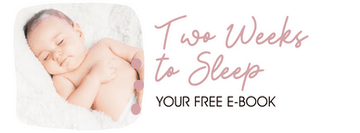
Receive product and services updates, promotional offers and other marketing communications based.


